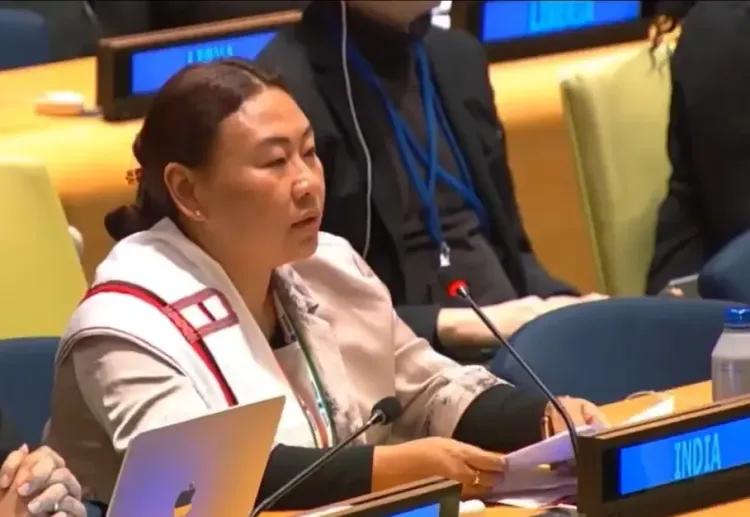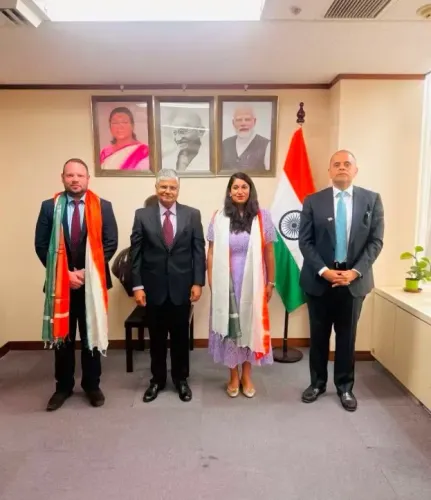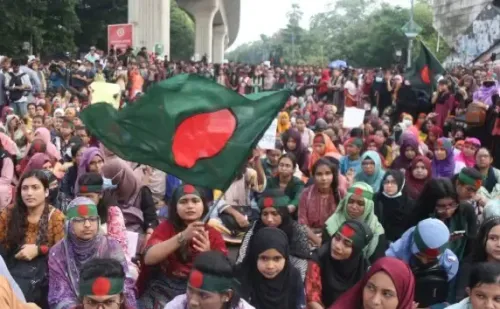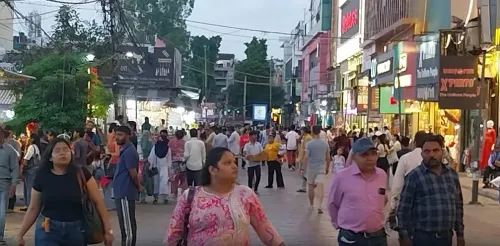Should Terrorism and Its Sponsorship Be Classified as Crimes Against Humanity by India?

Synopsis
Key Takeaways
- India calls for terrorism to be classified as a crime against humanity.
- BJP MP S. Phangnon Konyak emphasizes the need for justice.
- Concerns about national sovereignty and legal diversity were raised.
- The draft is influenced by the Rome Statute.
- International discussions on the treaty are set for 2028 and 2029.
United Nations, Oct 14 (NationPress) India has urged for the classification of terrorism and its sponsorship as crimes against humanity.
“We stress that any definition of crimes against humanity must clearly encompass the vile acts and atrocities committed by terrorists and their backers,” stated BJP MP S. Phangnon Konyak during the General Assembly’s Legal Committee session on Monday.
“Justice and accountability require that such deeds are not ignored,” she asserted while speaking at the committee's examination of crimes against humanity.
Konyak highlighted the necessity for the proposed international agreement aimed at preventing and penalizing crimes against humanity to incorporate terrorism. However, she also voiced concerns regarding several elements of the draft.
She emphasized that any treaty should acknowledge “the variety of legal frameworks and unequivocally honor national sovereignty.”
Nations hold “the primary responsibility and obligation to ensure justice and accountability for the gravest violations of human rights and mass atrocities occurring within their borders or committed by their citizens,” she stated.
Moreover, any convention must align with the Charter of the United Nations and universally accepted standards of international law,” she added.
Without these considerations, it could lead to “fragmentation and discord with existing legal principles.”
The draft was established by the International Law Commission, and the General Assembly has scheduled international discussions for 2028 and 2029 to negotiate a treaty concerning crimes against humanity.
Konyak, who represents Nagaland in the Rajya Sabha, mentioned that the draft is inspired by the Rome Statute, which established the International Criminal Court. She pointed out that India, along with several other nations, including permanent members of the Security Council, have significant reservations and are not signatories to it.
Additionally, she noted that many countries have expressed grave concerns regarding the politicization of the International Criminal Court.









